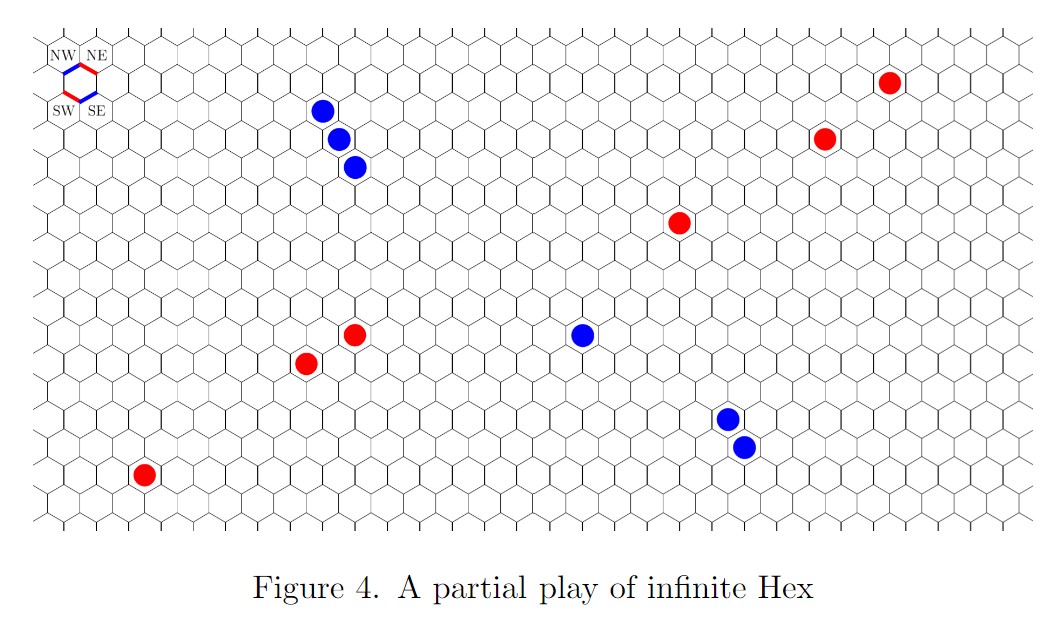Here are four, of various different flavors:
A silly one
I described in a different MO question a game where players work together to turn the harmonic series into an alternating (so conditionally convergent) series, with one player trying to make the sum of the resulting series land in a given set $X$. If $X$ is Borel, then Borel determinacy applies, but I don't see any easier argument.
Of course, this has the slight drawback of being completely artificial!
A graph-building game
For a property $\mathcal{P}$ of (directed) graphs, let $G_\mathcal{P}$ be the game where players 1 and 2 work together to build a graph with vertex set $\mathbb{N}$, where at move $s=\langle i,j\rangle$ the appropriate player (corresponding to the parity of $s$) decides whether or not there is an edge from $i$ to $j$. "Simple" graph properties yield obviously-determined games, but rather quickly determinacy becomes hard to establish.
Borel determinacy implies that $G_\mathcal{P}$ is determined even for very rich $\mathcal{P}$ - namely, any $\mathcal{P}$ which is expressible as an $\mathcal{L}_{\omega_1,\omega}$-sentence in the language of graph theory. And this is robust to changes of the structure of the game - e.g. allowing players to play finitely many "edge facts" at once, etc. - or to different sorts of structure.
"Road runner vs. coyote"
This is an elaboration on the previous example. Let $\mathbb{K}$ be a class of structures, and consider the following game: players 1 and 2 each build a structure in a "step-by-step" way, with player 2 winning iff their structure $\mathcal{B}$ is isomorphic to player 1's structure $\mathcal{A}$.
... assuming that $\mathcal{A}\in\mathbb{K}$ - if $\mathcal{A}\not\in\mathbb{K}$, then player 2 wins iff $\mathcal{B}\in\mathbb{K}$. Basically, $\mathbb{K}$'s complement is a sort of "cliff" which player 1 can safely run off but player 2 can't. This aspect is what prevents 2 from having the obvious "just copy what 1 does" strategy, and motivates the name above.
OK fine, Montalban didn't call them that and instead used the more serious-sounding term "copy-diagonalize game." Missed opportunity, that. Anyways, the point is that if $\mathbb{K}$ is Borel then Borel determinacy applies, but a winning strategy may be quite hard to find.
An instructive counterexample
For an instructive non-example, consider the perfect set game on a Borel $X\subseteq\mathbb{R}$. Prima facie its determinacy follows from Borel determinacy but not closed determinacy. Of course this quickly disintegrates since we can "unfold" such a game to get a closed game ... but this is instructive since that's exactly what we do to prove Borel determinacy itself, albeit at a much higher level of complexity.

